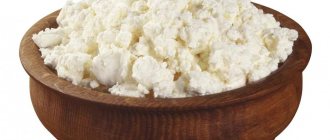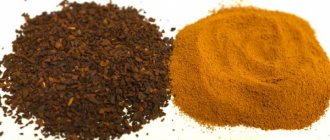Sweeteners make food sweet without adding calories, which is why they are very popular in diet foods. But recently, articles with loud headlines have appeared in the media that sweeteners cause cancer, diabetes, obesity and disrupt metabolism.
Sugar is a high calorie source and the enemy of anyone trying to lose weight, which is why many people try to avoid it. But most of us are accustomed to sweet food, and do not want (cannot) give it up. Therefore, non-calorie chemicals have been invented that stimulate the "sweet" taste buds on the tongue in the same way that sugar does. They are many times sweeter than sugar and are used in small quantities.
The overall effect of sweeteners on body weight is not fully understood. On the one hand, most short- and long-term human studies have shown that replacing sugar helps you lose weight by reducing the total caloric content of food.
On the other hand, it is believed that sugar substitutes increase a person’s dependence on sweet taste. The more any receptors in the body are stimulated, the faster the loss of sensitivity occurs, and an increase in dose is required. The sweet taste here is no exception. It sounds logical, but there are no official studies confirming the consolidation of addiction yet.
Some studies show that sweeteners increase hunger and make you eat more (, , ).
Sweeteners and body weight
Scientists have put forward the theory that a sweet taste without calories disrupts appetite regulation, because this does not occur in nature, and for the brain it is an unnatural thing.
This was proven in an experiment conducted on fruit flies (). At first glance, humans and flies have nothing in common, and it is incorrect to transfer the results. But fruit flies have great advantages as an experimental model. Not only do they have a short lifespan, their genetics are easy to manipulate and cheap. They have a body reaction similar to humans (and mammals) to the sweet taste of food and its calorie content. They even share some of the same insulin signaling and dopamine reward and motivation systems that humans have (.
The flies were fed food sweetened with sucralose (and other sweeteners for the purity of the experiment) for 5 days. During this period, the flies ate much more and were much more sensitive to sweet taste. Nutrition returned to normal only after removing sucralose from food.
Then the scientists compared the effects of the sweetener and regular sugar, which is both sweet and high in calories, on the same flies. The latter did not increase appetite, unlike sucralose.
This led scientists to suggest that large amounts of sucralose create an imbalance between sweetness and calorie content. As a result, a reaction similar to fasting develops in the body at the hormonal level. Thus, consuming large amounts of artificially sweetened food mimics the effects of fasting on the brain.
Isn't it time to sound the alarm?
Thus, scientists hypothesized that the physiological response to a sweet taste that does not carry calories disrupts the mechanisms of appetite and hunger control. The brain no longer “believes” that the sweet taste is associated with the arrival of energy, so it triggers hunger ().
Although this has been proven in animal experiments, for humans it remains at the level of theory. There is no direct research yet that artificial sweeteners promote fat accumulation (), including through increased hunger.
In theory, overindulging in sugar substitutes could be a cause of weight gain, but we need human studies.
So far, much more research shows that sweeteners in moderation make foods lower in calories and help you lose weight (, , , ).
To date, all studies showing a connection between sweeteners and obesity in humans are observational in nature. This means that a connection has simply been found between two variables: obese people drink more Diet Coke more often. Such studies do not prove that cola causes obesity.
Diet soda drinkers are more likely to be overweight due to poor eating habits and other factors.
Some people drink Diet Coke to at least somehow whiten their poor diet, which leads to obesity. Others believe that they can afford more calories from food since they drink Diet Coke, and overeat (). So there is a connection, but not cause and effect. Diet Coke doesn't make you fatter, it's just that obese people tend to drink Diet Coke.
Syrups
Maple syrup
Liquid sweetener is bright brown in color with caramel and woody notes. Made from maple sap. According to many nutritionists, this product is close in its beneficial qualities to honey: it is rich in vitamins, minerals and antioxidants. The main component is sucrose.
Pros: high content of nutrients, suitable for diabetics.
Cons: fairly high glycemic index (54) and calorie content (260 kcal).
Rice Syrup
A liquid sweetener that is golden brown in color and has a distinct caramel flavor. It is obtained by fermenting brown rice grains. It owes its sweetness to three sugar components - maltotriose, maltose and glucose.
Pros: high content of nutrients, neutral taste, suitable for diabetics.
Cons: very high glycemic index (98); less sweet than regular sugar; high in calories (311 kcal).
Agave syrup
Liquid sweetener based on blue agave root. Fructose is mainly responsible for sweetness. The syrup can be dark or light depending on the degree of filtration.
Pros: about twice as sweet as sugar, so it is used sparingly; has a low glycemic index (17) and works well in baking.
Cons: high in calories (311 kcal), is an allergenic product, not recommended for people with liver and gallbladder diseases, as well as diabetics.
Chicory syrup
Liquid sweetener from chicory root obtained by hydrolysis. The main substance responsible for sweetness is the oligosaccharide inulin. It has a light and delicate taste.
Pros: low in calories (no more than 170 kcal), has many beneficial properties, recommended for diabetics.
Cons: May have a laxative effect if consumed in excess; has less sweetness than sugar.
/product/sirop-topinambura-250-g-tm-royal-forest/
Liquid sweetener from ground pear obtained by hydrolysis. Externally similar to flower honey. Inulin and fructose are responsible for its sweetness.
Pros: has a low glycemic index (15) and a rich set of nutrients (vitamins, minerals, polyphenols, amino acids).
Cons: quite high in calories (260 kcal).
Sweeteners, insulin and diabetes
Some studies show that diet soda may increase the risk of diabetes by 6-121%. But all these studies are again based on observations. They can't prove that artificial sweeteners cause diabetes. They show that people who are more likely to develop type 2 diabetes drink diet soda.
Controlled studies show that artificial sweeteners do not affect blood sugar levels or raise insulin levels (, , , , ). Aspartame has a slight effect due to the amino acid phenylalanine, but the significance is so small that it can be neglected.
Blood sugar tests
Having read or heard about the benefits of this or that sweetener, many independently include sweeteners in their diet to prevent diabetes and other diseases that may arise in response to excessive consumption of refined sugar. However, the first thing it is recommended to start with is laboratory tests.
CITILAB reminds: if you notice that you constantly feel thirsty, have a frequent urge to urinate, or have an uncontrollable appetite, go through the Diabetes Screening program. It includes the main diagnostic laboratory tests to detect diabetes:
- Basic glucose tolerance test
- Glycosylated hemoglobin (HBA1c)
- Insulin
- C-peptide
- Profile HOMA-IR Index
Be healthy!
Author:
Baktyshev Alexey Ilyich, General Practitioner (family doctor), Ultrasound Doctor, Chief Physician
Selection of sweeteners
Which sweetener is safer? What to choose? Only a few of them have been studied so far, but they are found most often in food and drinks.
Aspartame
The FDA (American food and drug regulator) approved aspartame in 1974, when enough evidence had accumulated around the world about its safety. Why does the paranoia about him continue? Most likely due to several rodent studies. They showed that aspartame caused some forms of cancer in them ().
But experiments also showed that dangerous doses of aspartame for humans are much greater than those that any normal person can eat per day. The FDA has set the acceptable daily intake for aspartame at 50 mg/kg body weight. This is equivalent to 18-19 cans of Diet Coke.
Additionally, rodents and humans have different mechanisms for metabolizing aspartame, so the study results may not be generalizable to humans (). Aspartame has only been proven to be dangerous for people with the rare hereditary disease phenylketonuria: aspartame can create dangerous levels of the amino acid phenylalanine. Some studies show a link between aspartame and migraines. But for most people, aspartame is completely safe in reasonable doses.
Acesulfame potassium
Approved by the FDA for use in carbonated beverages in 1998. 200 times sweeter than regular sugar. The human body does not absorb it, so the substance does not provide any calories. One of its breakdown products is considered toxic in large doses - much more than you can eat in a day.
Sucralose
Although sucralose is made from sugar, the human body does not recognize it as sugar. Therefore, it is not digested and does not provide calories.
The acceptable daily intake for sucralose is 5 mg/kg body weight per day, but the typical calculated daily dose for humans is much lower, 1.6 mg/kg per day. Human studies have not shown any harmful effects. But similar to aspartame, some studies have found a link between sucralose consumption and migraines.
Saccharin
Of all the artificial sweeteners on this list, saccharin is the only one with a bad name. The FDA tried to ban it in 1977 as a result of a series of animal studies that found a strong link between saccharin consumption and cancer in rodents. Although no studies have shown a clear cause-and-effect relationship between saccharin consumption in normal dosages and human risks, some studies show a correlation.
There is no convincing evidence yet that saccharin in recommended doses is harmful to humans. So overall, even this has a fairly low level of risk.
In addition, saccharin is rarely found in modern dietary products, unlike aspartame and sucralose.
Sodium cyclamate
Sodium cyclamate is 30-50 times sweeter than sugar. A safe daily dose is 10 mg/kg body weight. The additive is permitted in many countries, including the European Union. It has been banned in the United States since 1969, but the issue of lifting the ban is being considered.
In rodent studies, sodium cyclamate increased the risk of bladder cancer, but epidemiological data do not support a similar risk in humans ().
Also, some people have bacteria in their intestines that are capable of processing sodium cyclamate to form metabolites that are conditionally teratogenic, so it is prohibited for pregnant women (especially in the first 2-3 weeks of pregnancy).
Xylitol
Xylitol is a sugar alcohol. It is a popular ingredient in chewing gum, candy, and other diet products. Due to its structure, like sugar, it stimulates special receptors on the tongue, entering them like a key into a lock. Xylitol is similar in sweetness to regular sugar, but contains 40% fewer calories - 2.4 calories per gram.
Xylitol is found in small amounts in many fruits and vegetables and is therefore considered natural. Humans also produce small amounts of it through metabolism.
Although sugar alcohols (xylitol, erythriol, etc.) are technically carbohydrates, most of them do not raise blood sugar levels. In addition, xylitol destroys bacteria that cause tooth decay.
Xylitol is usually well tolerated, but some people may experience gastrointestinal problems such as bloating and/or diarrhea if they overdose.
Erythriol is another sugar alcohol, but it contains virtually no calories (0.24 calories per gram). It is not absorbed by the body, passing through digestion practically unchanged. For people who suffer from excess weight, diabetes or other problems associated with metabolic syndrome, erythritol proves to be an excellent alternative to sugar.
Stevia
Stevia is an herb whose leaf extract is used as a natural sweetener. It is 200-300 times sweeter than sugar and has a slightly bitter aftertaste. Unlike aspartame, sucralose and other substances, stevia not only makes food sweeter, but also has pharmacological activity.
At low doses, stevia consumption is associated with overall anti-inflammatory and antioxidant effects (, , ). These effects are associated with protection of the kidneys, pancreas, liver and brain from damaging stressors.
But doses that are too high appear to be associated with fertility problems in animals. Although there are no human studies, it is wise not to exceed the recommended amount. As for the carcinogenic effect of chronically large excesses of the norm, it has been found in animals, but is assumed to be insignificant.
Adequate daily intake is 7.9-25 mg/kg body weight. This dose is sufficient for anti-inflammatory and antioxidant effects, but not sufficient for any harmful effects.
The truth you need to know about sugar
Sugars are a very large group of organic substances that are found not only in the familiar (and so frightening) refined sugar. This term summarizes a range of low molecular weight carbohydrates found in many foods. Glucose, lactose, fructose and other sugars form an important part of our diet. It is not advisable to exclude them completely for many reasons, but you can, of course, make a choice in favor of those sugar-containing products that seem to be the most valuable for the body or at least the least harmful.
These include sugars with a low glycemic index (GI), that is, those that have minimal effect on changes in blood glucose levels. Low GI carbohydrates are digested more slowly and cause smaller and slower increases in sugar and insulin levels.
When trying to eliminate sugar from your diet, keep the following points in mind:
- A large amount of sugars are found in fruits (fructose), berries (glucose), dairy products (lactose), etc. If for any reason you need to completely eliminate fast carbohydrates, do not write these foods off.
- It is generally accepted that fruits are very healthy, and fructose is better than sucrose. But in fact, fructose is metabolized only in the liver, so a fruit diet is a rather ambiguous thing: when switching to a long-term diet of fruit alone, you risk greatly overloading this important organ with work.
- If you want to give up regular sugar to lose weight, you need to consider other sources of calories (which may not be sweet).
- There are many studies showing the harm of consuming sugar, but most scientists agree that in small doses it is not harmful and acts as a source of energy, like other carbohydrates.
conclusions
There are no studies to date that indicate any long-term health risks from consuming sugar substitutes at recommended dosages. Sugar substitutes are not harmful to health or body weight ().
The only people who need to limit sweeteners are children, pregnant women, nursing mothers, and those prone to seizures, headaches, or migraines. If you don't fall into one of these groups, don't worry about the dangers of sweeteners.
To eat or not to eat
The benefits of using sweeteners in the diet have been proven in numerous studies.
Perhaps the most important recommendation is not to exceed the permissible daily dose. As a rule, the manufacturer indicates such information on the product packaging. She shouldn't be neglected. — The main complaint about artificial analogues is their special behavior during heat treatment, —
says Tatyana Musick.
— For example, aspartame and cyclamate do not tolerate high temperatures.
They decompose and can negatively affect the body. This should definitely be taken into account during culinary experiments. But sucralose, stevia, and erythritol are not afraid of temperature changes. Feel free to use them in your kitchen. It’s worth reminding: all sweeteners have a laxative effect. Take the time to look at the back of the product packaging or the sweetener itself. Even well-known analogues of sugar in tablets are consumed in a strictly limited dose.
— Tea drinkers would do well to have honey in their arsenal. It is a good source of vitamins and also has an immunomodulating effect. Just don’t add it to hot tea, as this will destroy the beneficial properties. Eat with a bite. One or two spoons will be enough, -
reminds me of a nutritionist.
Particular attention is paid to children's nutrition: on average, until the age of two, a child, in principle, does not need sugar. As for sweeteners, scientists agree: only stevia is suitable for baby food. Again, not earlier than two years.
Which substitute to choose
Which sweetener is better to choose? Now among the best substitutes are Sucralose and Erythritol.
If you have any problems with the gastrointestinal tract, diabetes mellitus, or have experienced food allergies, be sure to consult your doctor before taking sweeteners.
It is not recommended to introduce substitutes into the children's menu. It is better for parents to monitor their children's consumption of sweets.
Sugar is present in almost every product and it is impossible to completely eliminate it from the diet. However, reducing its consumption to a minimum is quite possible.
Will they help you lose weight?
Sugar substitutes
Stevia, aspartame, xylitol, sorbitol, saccharin, cyclamate, sucralose, acesulfame potassium. The main things you need to know: properties, “E” codes and dosages.
Another point of criticism is the possible effect on appetite and consumption of other sweet foods.
But scientists have conducted research and found that sweeteners really help fight excess weight
, since they have virtually no effect on appetite. However, losing weight using non-nutritive sweeteners is only possible if you limit your total calorie intake. “By the way, sweeteners have a laxative effect,” recalls Sharafetdinov. “So consuming too many sweets containing these substances can lead to stomach upset.”











